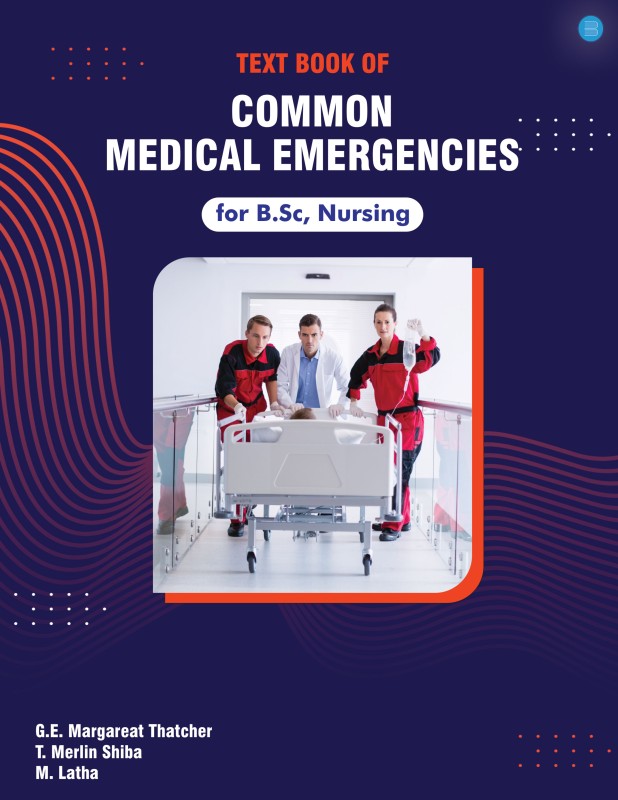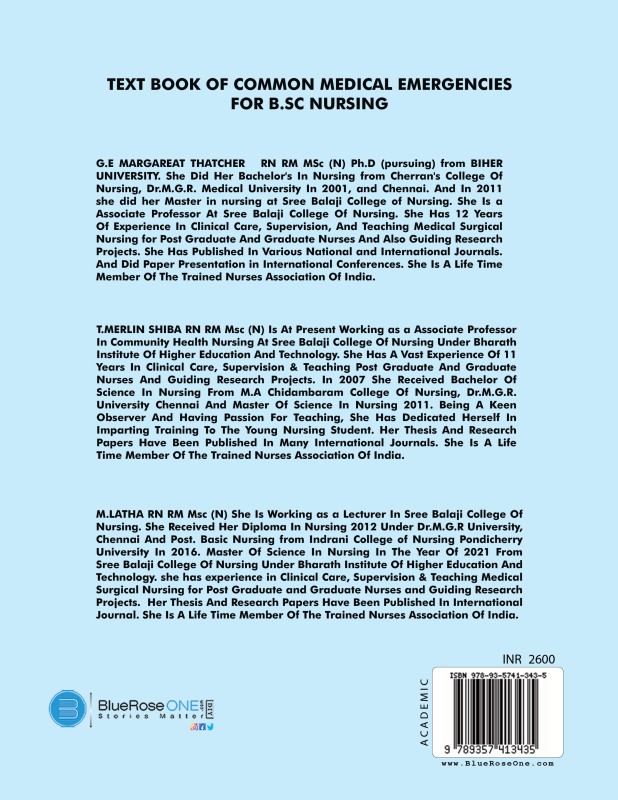Text Book of Common Medical Emergencies
by MERLINSHIBA | 02-Mar-2023
(0)
A medical emergency is an acute injury or illness that poses an immediate risk to a person's life or long-term health, sometimes referred to as a situation risking "life or limb". These emergencies may require assistance from another, qualified pe...
Original
Books
Fastest
Delivery
7-day
Replacement
Book Details
- Language : English
- Pages : 334
- ISBN : 9789357413435
- Genre: ACADEMIC
- Size : 8.5" x 11"
- Binding Type : PAPERBACK
- Age Group: 14 - 60 Years
- Paper Type : WHITE PAPER
- Interior : COLOR
- Cover : GLOSS FINISH
- Book Type : PAPERBACK
- Tags : Text Book of Common Medical Emergencies,Academic
-
Best Sellers Rank :
#390 in Academics
#2355 in Global
Reviews
There are no reviews for this product yet.

 USD
($)
USD
($) AUD
($)
AUD
($) CAD
($)
CAD
($) EUR
(€)
EUR
(€) HKD
($)
HKD
($) MYR
(RM)
MYR
(RM) GBP
(£)
GBP
(£) SGD
($)
SGD
($)








